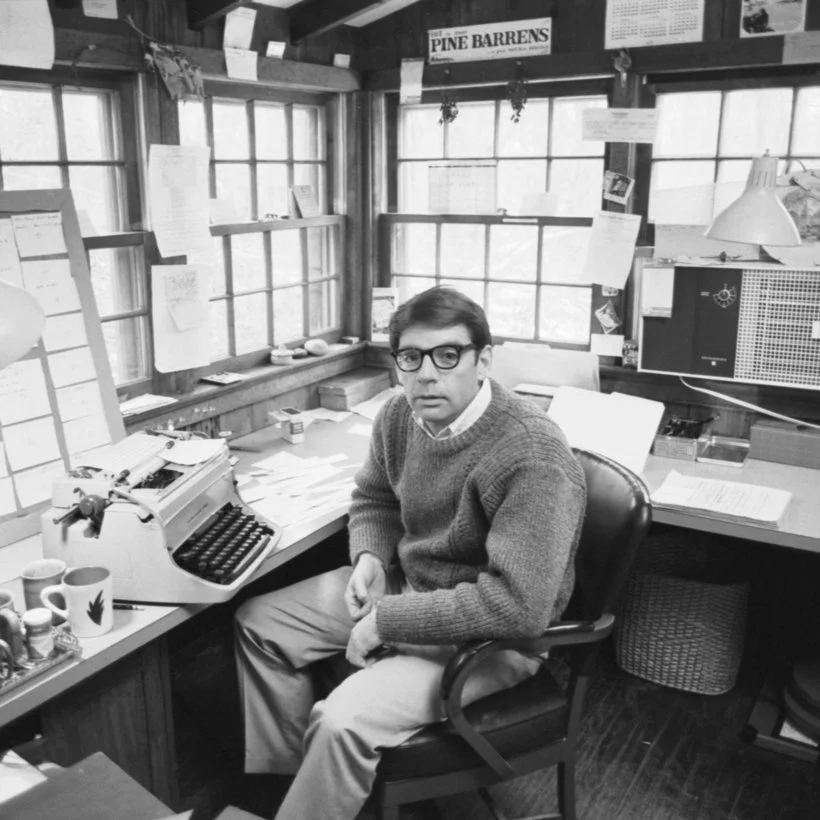The Clean Slates of John McPhee
I discovered John McPhee's "Tabula Rasa" while browsing my local bookstore, The Book Catapult, on a sunny South Park Monday, my fingertips leaving faint impressions on its pristine cover. The subtitle, "Volume 1," struck me as quietly audacious for an author in his nineties, a declaration that the universe of what remains unsaid still expands beyond what time allows.
The book itself functions as a kind of literary paradox: published works about unpublished ideas, realized treatments of unrealized projects. McPhee has built his reputation on meticulous extended narratives about everything from oranges to geological formations, yet here, he offers us glimpses into the negative space that surrounds his considerable output. These are vignettes on river deltas never mapped, on pharmaceutical naming conventions never decoded, on Swiss civil engineers whose stories remained untold.
Reading it reminds me of those moments in astronomical photography when scientists deliberately obscure a brilliantly luminous star to better observe the planets that orbit in its shadow. McPhee's published works represent that central luminosity; "Tabula Rasa" reveals what circulates in the penumbra of his attention.
What distinguishes McPhee's approach is how he resists framing these abandoned projects as failures. There's no elegiac quality to his prose, no sense of opportunity squandered. Instead, he presents them as parallel possibilities, branches of an intellectual life that grew in different directions than the visible trunk. It reminds me of how filmmakers speak of the cutting room floor: not as a graveyard for mistakes, but as an archive of alternate narratives that served their purpose simply by being conceived.
When I returned to my home, I pulled out three notebooks from my bottom desk drawer. Each contained outlines, research notes, and opening paragraphs for documentaries and projects I eventually abandoned. I'd kept them partly from superstition (never discard any idea) and partly from a vague sense that I might someday "get back to them." But McPhee's book suggests a different relationship to these fragments. Perhaps they need not be completed to be valuable; perhaps they've already served their purpose by existing as intellectual explorations, as questions asked if not fully answered.
This perspective feels particularly resonant in our cultural moment, which equates productivity with worth and treats unfinished projects as evidence of personal failing rather than as inevitable artifacts of a curious mind. When McPhee writes about his abandoned piece on colonial-era agricultural practices or his unrealized profile of a Princeton physicist, he demonstrates how these unexplored territories shaped his intellectual landscape even without being charted in full.
The mathematician Paul Erdős famously said that mathematics is not yet ready for certain problems, that some questions must wait for future generations to develop the tools to address them properly. Perhaps the same holds true for documentaries. Some stories find us at the wrong moment; others require resources or perspectives we cannot access; still others serve as necessary preparations for work that eventually does emerge.
As twilight deepens outside my window, I find myself reconsidering the metrics by which we measure intellectual and creative lives. We count publications, word counts, citations: all the visible evidence of thought made manifest. But "Tabula Rasa" stands as a testament to the unseen architecture that supports these visible structures, the questions contemplated but set aside, the curiosities that animated months of research without culminating in publishable form.
When I sat down to work this morning, I approached my current project differently, understanding it not as an isolated endeavor but as one manifestation of a broader constellation of interests. The pressure to complete, to produce, to publish softened into something more sustainable: a recognition that even unfinished explorations alter how we see the world. McPhee's book offers this gift, permission to value the clean slates of our intellectual lives not as empty spaces awaiting inscription, but as fields of potential that nourish whatever does take root.
